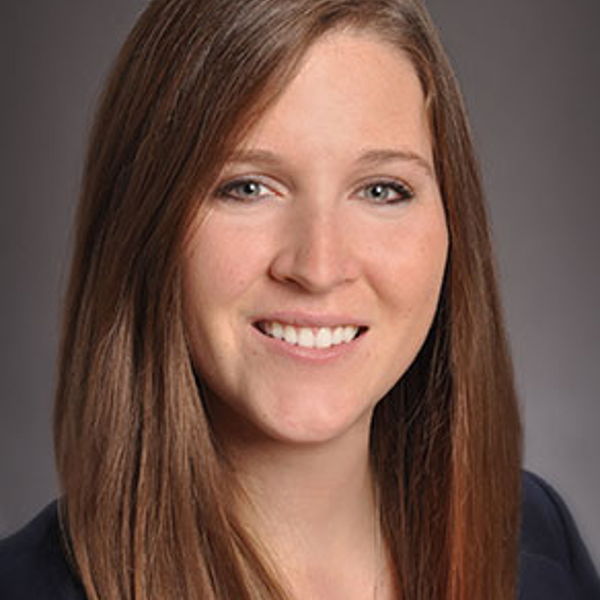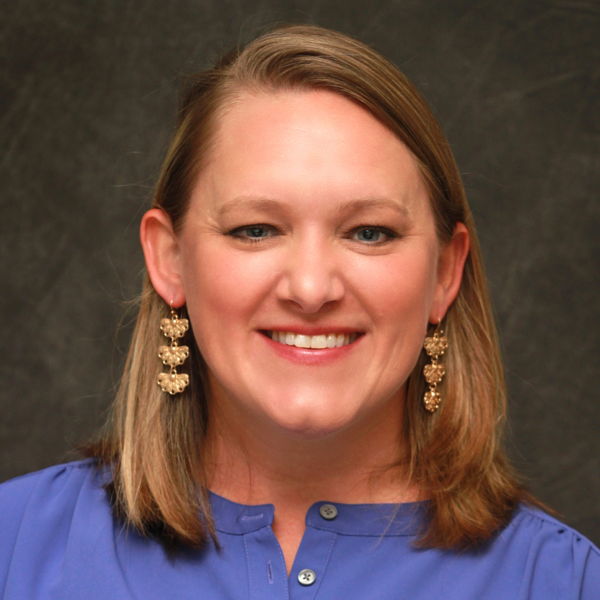-
course Info -
Content -
Ce Approvals -
Policies
SMA Educator's Webcourse for Educators & Professional Support Staff
Learning Objectives
Define Selective Mutism (SM) and common symptom presentations. Explain the etiology and conceptualization of SM. Identify 3 recommended strategies to increase assessment success. List 3 measures specific to anxiety and selective mutism. Define 3 testing considerations for Academic and Cognitive Assessments with youth with SM. Describe the purpose of educational support plans for youth with SM. Explain how to determine need for support for youth with SM. Identify 3 types of appropriate accommodations for youth with SM. Identify 3 potential areas of goals for youth with SM. List 3 Child Directed Interaction (CDI) Skills to aid warm up time and build rapport/comfort with youth with SM. List 3 Verbalization Directed Interaction (VDI) skills to promote verbalization in youth with SM. Describe 3 effective prompting sequences to promote verbalization in youth with SM. Identify when to use shaping with youth with SM. Describe a typical progression of speech goals with youth with SM. Identify 4 steps to follow when implementing stimulus fading with adult or peer communication partners with youth with SM. Define why positive reinforcement is a necessary component of treatment with youth with SM. Provide 3 examples of rewards. Create 3 goals for the classroom with youth with SM. Describe how to Integrate support strategies into daily classroom routines. Identify several methods of discussing SM in the classroom with peers. List 3 suggestions about how to address your concerns regarding the SM with your student’s caregivers.
Learning Levels
Beginner
Target Audience
Course Instructor(s)
-
 Brittany Bice-Urbach, Ph.D.Associate Professor and Clinical Psychologist
Brittany Bice-Urbach, Ph.D.Associate Professor and Clinical PsychologistDr. Bice-Urbach is an Associate Professor in the Department of Pediatrics at the Medical College of Wisconsin and has been working as a clinical psychologist at the Center for Child Development, a developmental clinic through Children’s Wisconsin. Dr. Bice-Urbach has a specialty in best practices in providing telebehavioral health services. Dr. Bice-Urbach also has a clinical specialty in treating children and adolescents with anxiety disorders through cognitive behavioral therapy (CBT) with a primary focus on treating children with Selective Mutism. At the Center for Child Development, she has been offering assessment, individual therapy, group therapy, and family/school consultation and training to support children with Selective Mutism. She is a board member of the Selective Mutism Association and has given several national presentations on Selective Mutism. She also has prioritized trainings for medical facilities and pediatricians on Selective Mutism.
-
 Rachel Busman, Psy.D., ABPPSenior Director, Child & Adolescent Anxiety and Related Disorders Program, Cognitive Behavioral Consultants
Rachel Busman, Psy.D., ABPPSenior Director, Child & Adolescent Anxiety and Related Disorders Program, Cognitive Behavioral ConsultantsRachel Busman, PsyD, ABPP is the senior director of the Child and Adolescent Anxiety and Related Disorders Center at Cognitive Behavioral Consultants. She was previously the director of the Anxiety Disorders Center and Selective Mutism Service at the Child Mind Institute. She ran Brave Buddies, an intensive treatment program for SM for many years. Dr. Busman is the former president of the Selective Mutism Association, the nation’s largest network of professionals, families, and individuals with selective mutism.
Dr. Busman has extensive experience providing cognitive behavioral therapy (CBT) to children, teenagers and young adults struggling with anxiety disorders, school difficulties and behavioral problems. She also has specific interest and expertise in the evaluation and treatment of obsessive-compulsive disorder, separation anxiety disorder, social anxiety disorder and specific phobias. She is certified in PCIT-SM and has lectured widely on this topic. She trains others through the SMA and is passionate about her work with children and families.
-
 Emily R. Laracy, M.A., M.S., CCC-SLPSpeech Language Pathologist
Emily R. Laracy, M.A., M.S., CCC-SLPSpeech Language PathologistEmily Laracy is a licensed speech-language pathologist who currently works in an elementary school in Eastern PA. Her caseload includes students in grades K-5 with a variety of social, emotional, cognitive, and academic needs, including students with selective mutism. Emily also participates as a counselor at the Child Mind Institute’s Brave Buddies programs for children with selective mutism. Prior to working as a speech pathologist, Emily taught preschool for 10 years and worked one-on-one with a student with selective mutism in this setting. Emily received her M.A. in Applied Developmental Psychology with a focus on Language Acquisition from George Mason University and her M.S. in Speech-Language Pathology from East Stroudsburg University. She continues to conduct and collaborate in research within the speech pathology field through East Stroudsburg University, where she also serves as a guest lecturer for graduate and undergraduate classes. Her professional interests are in helping children with anxiety and communication needs find the tools to communicate effectively and efficiently with those around them.
-
 Eleanor Ezell, LCSWOwner, Child and Family Therapy Collective
Eleanor Ezell, LCSWOwner, Child and Family Therapy CollectiveEleanor Ezell, LCSW, is a licensed therapist in Tennessee and is the Founder and Clinical Director at Child and Family Therapy Collective based in Nashville, TN. She has extensive experience providing evidence-based therapy to children and young teens who struggle with selective mutism, anxiety, ADHD and disruptive behavior disorders, and a wide range of developmental delays.
She attended New York University for graduate training where she trained with and worked very closely with Dr. Steven Kurtz over 5 years treating children with selective mutism and related disorders. She completed a two-year Developmental Behavioral Pediatrics Fellowship at The University of Mississippi Medical Center where she also was personally grand funded to bring PCIT-SM and the Brave Buddies/Mighty Mouth Kids Camp model to the state of Mississippi. In the last 10 years, she has participated in, or replicated, intensive treatment in New York, California, Mississippi and soon will replicate in Tennessee. Eleanor currently runs the selective mutism program at Child and Family Therapy Collective in Nashville, TN where she offers weekly sessions, individual intensives and intensive group model treatment.
-
 Jami Furr, PhDFlorida International University
Jami Furr, PhDFlorida International UniversityDr. Jami Furr is a Clinical Associate Professor and Senior Psychologist in the Mental Health Interventions and Novel Therapeutics (MINT) Program, and Developer of the Selective Mutism Program at Florida International University Center for Children and Families (CCF). Dr. Furr obtained her doctorate in clinical psychology from Temple University, and completed her clinical internship and postdoctoral fellowship at the NYU Child Study Center and Bellevue Hospital Program in New York. Dr. Furr currently serves as a Trainer for the Network for Expanding Child Wellness in Disaster-Affected Youth (or NEW DAY) - a SAMHSA-funded and National Child Traumatic Stress Network affiliated program providing largescale training and consultation in disaster mental health to youth-serving professionals in disaster-hit regions and disaster-prone regions across the United States. Dr. Furr has extensive clinical expertise and research interests in cognitive and behavioral treatments of childhood anxiety and disruptive behavior disorders, with a particular focus on preschool mental health. She has served as the Clinical Director of several federally funded randomized trials evaluating the acceptability and utility of telehealth strategies for expanding the scope and reach of mental health care; and currently provides training and supervision for clinical services for anxiety, OCD, and/or disruptive behavior problems for children and adolescents. Dr. Furr also has led the field of selective mutism in youth regarding clinical and research programs. She is the Past-President of the Selective Mutism Association and has continued to serve on their Board of Directors for the last 7 years. Dr. Furr is currently conducting one of the first long-term outcome studies on children with selective mutism. She has numerous publications and conducts trainings locally and nationally in the areas of trauma, anxiety, and selective mutism in youth. In 2019, Dr. Furr was the recipient of the Anne Marie Albano Early Career Award for the Integration of Science and Practice from the Association for Behavioral and Cognitive Therapies (ABCT) and the Florida International University College of Arts, Sciences, and Education Award for Research.
-
 Taylor Hicks-Hoste, LP, NCSPPsychologist
Taylor Hicks-Hoste, LP, NCSPPsychologistTaylor Hicks-Hoste is a licensed psychologist (LP) in the states of Michigan and California, as well as a Nationally Certified School Psychologist (NCSP). She received her Ph.D. in school psychology from Michigan State University. Her professional experiences span across both school and clinic settings. As a school psychologist, she has serviced students, families and teachers, grades preschool through twelfth grade. She has also worked as a countywide behavioral health consultant, in which she has partnered with local districts in the promotion of mental health awareness and in the direct provision of school-based mental health supports to students. Taylor’s clinical work at Thriving Minds in Michigan includes the treatment of children, teens, and families with an emphasis on anxiety-based disorders such as selective mutism, separation anxiety, and school refusal.
-
 Katelyn Reed, MSLimited Licensed Psychologist, Selective Mutism Program Director
Katelyn Reed, MSLimited Licensed Psychologist, Selective Mutism Program DirectorKatelyn Reed, M.S. is a Limited Licensed Psychologist at Thriving Minds Family Services, located in Chelsea, MI. She completed her Master’s degree in Clinical Behavioral Psychology at Eastern Michigan University where she focused on evidence-based behavioral and cognitive behavioral interventions for children and adolescents. Through her work at Thriving Minds, Katelyn specializes in treating children with Selective Mutism via traditional weekly therapy, intensive therapy (i.e., 15-20 hours of treatment in one week), and group therapy models. Through an exposure therapy model, children with Selective Mutism are encouraged to be brave in talking with new people and in new settings. Katelyn emphasizes collaborative care and frequently works in partnership with parents and schools to best assist clients and to promote growth through education on appropriate goals and interventions. Katelyn is also the Assistant Director for Confident Kids Camp, an intensive week-long treatment program for children with Selective Mutism. In addition to her work with children with Selective Mutism, Katelyn provides evidenced-based therapy for children with other anxiety disorders, depressive disorders, and disruptive behavior disorders.
Katelyn has been a professional member of the Selective Mutism Association since 2013 and joined the Board of Directors in 2017. Katelyn is the current President of SMA. She is passionate about spreading awareness about Selective Mutism and about effective treatment techniques and is excited to contribute to the mission of SMA through her involvement on the Board of Directors.
Disclosure
References
-
American Psychological Association (2014). Distinguishing between screening and assessment for mental health and behavioral health problems. https://www.apaservices.org/practice/reimbursement/billing/assessment-screening
-
American Speech-Language-Hearing Association. (2023b). Components of Social Communication. https://www.asha.org/practice-portal/clinical-topics/social-communication-disorder/components-of-social-communication/
-
American Speech-Language-Hearing Association. (2023a). Selective Mutism Practice Portal. https://www.asha.org/practice-portal/clinical-topics/selective-mutism/#collapse_4
-
Bergman R. L., Keller M. L., Piacentini J., Bergman A. J. (2008). The development and psychometric properties of the Selective Mutism Questionnaire. Journal of Clinical Child and Adolescent Psychology, 37(2), 456–464. https://doi.org/10.1080/15374410801955805
-
Bergman, R.L., Piacentini, J., McCracken, J.T. (2002). Prevalence and description of selective mutism in a school-based sample. Journal of the American Academy of Child and Adolescent Psychiatry, 41, 938-946. https://doi.org/10.1097/00004583-200208000-00012
-
Birmaher, B., Khetarpal, S., Cully, M., Brent, D., McKenzie, S. (1995). Screen for Child Anxiety Related Disorders (SCARED).
-
Bogels, S. M., Alden, L., Beidel, D. C., Clark, A. L., Pine, D. S., Stein, M. B., et al. (2010). Social anxiety disorder: questions and answers for the DSM-V. Depression and Anxiety, 27(2), 168-189. https://doi.org/10.1002/da.20670
-
Chorpita, B.F., Ebesutani, C., & Spence, S.H. (2022). Revised Children’s Anxiety and Depression Scale. https://www.childfirst.ucla.edu/resources/
-
Driessen J., Blom J.D., Muris P., Blashfield R.K., Molendijk M. Anxiety in children with selective mutism: A meta-analysis. (2020). Child Psychiatry and Human Development; 51 (2), 330–341. https://doi.org/10.1007/s10578-019-00933-1
-
Elizald-Utnick, G. (2007). Young selectively mute English language learners: school-based strategies. Journal of Early Childhood and Infant Psychology, 3, 143-163.
-
Elizur, Y., & Perednik, R. (2003). Prevalence and description of Selective Mutism in immigrant and native families: A controlled study. Journal of the American Academy of Child & Adolescent Psychiatry, 42, 1451–1459, https://doi.org/10.1097/00004583- 200312000-00012
-
Eyberg, S. M., & Funderburk, B. (2011). Parent-Child Interaction Therapy Protocol. Gainesville, FL: PCIT International.
-
Gensthaler, A., Dieter, J., Raisig, S., Hartmann, B., Ligges, M., Kaess, M., Freitag, C.M., & Schwenck, C. (2020). Evaluation of a Novel Parent-Rated Scale for Selective Mutism. Assessment, 27, 1007-1015. http://doi.org/10.1177/1073191118787328
-
Giddan, J. J., Ross, G. J., Sechler, L. L., & Becker, B. R. (1997). Selective mutism in elementary school: Multidisciplinary interventions. Language, Speech, and Hearing Services in Schools, 28(2), 127-133. https://doi.org/10.1044/0161-1461.2802.127
-
Hong, N., Cornacchio, D., Furr, J.M., & Comer, J.S. (2018, November). Utilizing observational measures to evaluate the efficacy of intensive group behavior therapy for children with selective mutism. Poster presented at the 52nd annual meeting of the Association for Behavioral and Cognitive Therapies. Washington, DC.
-
Kearny, C. A. & Spear, M. (2013). Assessment of selective mutism and school refusal behavior. In D. McKay & E.A Storch (Eds.), Handbook of Assessing Variants and Complications in Anxiety Disorder (pp. 29-42). New York: Springer.
-
Klein, E.R., Armstrong, S. L., & Shipon-Blum, E. (2012). Assessing spoken language competence in children with selective mutism: Using parents as test presenters. Communications Disorders Quarterly, 34(3), 184-195. https://doi.org/10.1177/1525740112455053
-
Kopp, S., & Gillberg, C. (1997). Selective mutism: A population-based study: a research note. Journal of Child Psychology and Psychiatry, and Allied Disciplines, 38, 257–262, https://doi.org/10.1111/j.1469- 7610.1997.tb01859.x
-
Kristensen, H. (2000). Selective mutism and comorbidity with developmental disorder/delay, anxiety disorder, and elimination disorder. Journal of the American Academy of Child & Adolescent Psychiatry, 39, 249–256, https://doi.org/10.1097/00004583- 200002000-00026
-
Kristensen, H., & Oerbeck, B. (2006). Is selective mutism associated with deficits in memory span and visual memory?: An exploratory case–control study. Depression and Anxiety, 23(2), 71-76. http://doi.org/10.1002/da.20140
-
Mayworm, A. M., Dowdy, E., Knights, K., & Rebelez, J. (2015). Assessment and treatment of selective mutism with English language learners. Contemporary School Psychology, 19(3), 193–204. https://doi.org/10.1007/s40688-014-0035-5
-
McInnes, A., Fung, D., Manassis, K., Fiksenbaum, L., & Tannock, R. (2004). Narrative skills in children with selective mutism: An exploratory study. American Journal of Speech-Language Pathology, 13(4), 304-315. https://doi.org/10.1044/1058-0360(2004/031)
-
Muris, P., & Ollendick, T. H. (2015). Children who are anxious in silence: a review on selective mutism, the new anxiety disorder in DSM-5. Clinical child and family psychology review, 18, 151-169.
-
Nowakowski, M. E., Cunningham, C. E., McHolm, A. E., Evans, M. A., Edison, S., Pierre, J. S., ... & Schmidt, L. A. (2009). Language and academic abilities in children with selective mutism. Infant and Child Development: An International Journal of Research and Practice, 18(3), 271-290. https://doi.org/10.1002/icd.624
-
Reynolds, C.R., & Richmond, B.O. (2008). Revised Children’s Manifest Anxiety Scale, Second Edition.
-
Schum, R. L. (2006). Clinical perspectives on the treatment of selective mutism. The Journal of Speech and Language Pathology – Applied Behavior Analysis, 1(2), 149-163. http://dx.doi.org/10.1037/h0100190
-
Shriver, M. D., Segool, N., & Gortmaker, V. (2011). Behavior observations for linking assessment to treatment for selective mutism. Education & Treatment of Children, 34(3), 389–411. https://doi.org/10.1353/etc.2011.0023
-
Toppelerg, C.O., Tabors, P., Coggins, A., Lum, K., & Burger, C. (2005). Differential diagnosis of selective mutism in bilingual children. Journal of American Academic of Child and Adolescent Psychiatry, 44 (6), 592-595. https://doi.org/10.1097/01.chi.0000157549.87078.f8
-
Thomson, B., (2017). Selective Mutism in Immigrant Children: Cultural Considerations for Assessment and Intervention. Communique, 46 (2), 4.
CE Process Info
Content
-
Introduction to Selective Mutism11 parts
-
Welcome Statement
-
Welcome to the Educator's Guide on Selective Mutism
-
Disclaimer
-
Getting to Know You Survey
-
Pre-Test
-
SM 101
-
SM 101 Note Slides
-
SM 101 Quiz
-
What do SM symptoms look like in the classroom?
-
What does SM Look Like in the Classroom Note Slides
-
What does SM look like in the Classroom Quiz
-
-
Assessment of Selective Mutism19 parts
-
Prep for Success
-
Prep for Success Note Slides
-
Prep for Success Quiz
-
Assessment Strategies from the Speech-Language Perspective
-
Assessing SM from a Speech Language Perspective Note Slides
-
Assessment Strategies from the Speech-Language Perspective Quiz
-
Screeners & Rating Scales
-
Screeners & Rating Scales Note Slides
-
Screeners & Rating Scale Quiz
-
Interview & Observation Strategies
-
Interviews & Observations Note Slides
-
VOICE Instructions
-
Interviews & Observations Quiz
-
Academic Screeners & Standardized Tests
-
Assessment Measures Note Slides
-
Academic Screeners & Standardized Tests Quiz
-
Classroom Assessment
-
Classroom Assessment Note Slides
-
Classroom Assessment Quiz
-
-
Creating Student Supports Plans9 parts
-
Who qualifies for Educational Support Plans, Which plan, Categories within IEP
-
Who Qualifies for Educational Support Plans? Note Slides
-
Educational Support Plans Quiz
-
Accommodations for Students with SM
-
Accommodations Note Slides
-
Accommodations Quiz
-
Writing Intervention Goals
-
Writing Goals Note Slides
-
Writing Intervention Goals Quiz
-
-
Intro into school-based supports for students with SM4 parts
-
Intro into Individual Services Note Slides
-
Please read BEFORE proceeding to Individual Services for Students with SM
-
Introduction to Individual Services for Students with SM
-
Intro to Individual Services Quiz
-
-
Individual Intervention Supports at the Elementary Level12 parts
-
Elementary: Relationship Building Through Child-Directed Interaction (CDI)
-
Building Relationships through CDI Skills-Elementary Note Slides
-
Elementary: Strategies for Increasing Communication
-
Elementary: Strategies for Increasing Communication Note Slides
-
Elementary: Shaping: Building Speech Step by Step
-
Elementary: Shaping Note Slides
-
Elementary: Passing the Talking Baton
-
Elementary: Passing the Talking Baton Note Slides
-
Elementary: Rewards & Motivation
-
Elementary: Rewards & Motivation Note Slides
-
Defining Appropriate Goals at the Elementary Level
-
Defining Appropriate Goals: Elementary Note Slides
-
-
Individual Intervention Supports at the Secondary Level12 parts
-
Secondary: Relationship Building Through Child-Directed Interaction (CDI)
-
Secondary: Relationship building through CDI Note Slides
-
Secondary: Strategies for Increasing Communication
-
Secondary: Strategies for Increasing Communication Note Slides
-
Secondary: Shaping: Building Speech Step by Step
-
Secondary: Shaping Note Slides
-
Secondary: Passing the Talking Baton
-
Secondary: Passing the Talking Baton Note Slides
-
Secondary: Rewards & Motivation
-
Secondary: Rewards & Motivation Note Slides
-
Defining Appropriate Goals at the Secondary Level
-
Defining Appropriate Goals at the Secondary Level Note Slides
-
-
Post-Intervention Section Review Quiz6 parts
-
Defining Appropriate Goals Quiz
-
Rewards & Motivation Quiz
-
Passing the Speaking Baton Quiz
-
Shaping: Building Speech Step by Step Quiz
-
Strategies for increasing communication quiz
-
Relationship Building through CDI Quiz
-
-
Class-level Supports & Strategies13 parts
-
Elementary: Classroom Level Intervention
-
Elementary: Classroom Level Intervention Note Slides
-
Secondary: Classroom Level Intervention
-
Secondary: Classroom Level Intervention Note Slides
-
Classroom Level Intervention Quiz
-
Elementary: Discussing SM in the classroom
-
Discussing SM in the Classroom: Elementary Note Slides
-
Secondary: Discussing SM in the classroom
-
Discussing SM in the Classroom: Secondary Note Slides
-
Discussing SM in the Classroom Quiz
-
Voicing Concerns for Caregivers
-
Voicing concerns with caregivers: Note slides
-
Voicing Concerns to Caregivers Quiz
-
-
Closing3 parts
-
Post-Test
-
Closing Video
-
Tell Us What You Think!
-
-
Joint Accreditation (JA)
In support of improving patient care, CE Learning Systems is jointly accredited by the Accreditation Council for Continuing Medical Education (ACCME), the Accreditation Council for Pharmacy Education (ACPE), and the American Nurses Credentialing Center (ANCC), to provide continuing education for the healthcare team.
-
American Psychological Association (APA)
Continuing Education (CE) credits for psychologists are provided through the co-sponsorship of the American Psychological Association (APA) Office of Continuing Education in Psychology (CEP). The APA CEP office maintains responsibility for the content of the programs.
-
New York State Education Department's State Board for Social Work (NYSEDSW)
CE Learning Systems SW CPE is recognized by the New York State Education Department's State Board for Social Work as an approved provider of continuing education for licensed social workers #0060.
FAQs
-
Course CompletionTo complete the course, review the course objectives, then review the material, and then pass the exam with a score of 75% or greater and lastly complete an evaluation. You will get 3 attempts to pass the course, before you will be asked to re purchase. Your certificate will be available to download immediately when you pass the course exam and complete the evaluation.
-
CE Hours 12 -
Type Self-Paced -
Publication Date Aug 24th, 2023
Reset password
We sent a reset password link to the email address you provided.
{{reset.email}}
If you do not see the email, try checking your junk or spam folder.
If you don't receive a link in the email you provided, please click the button below to resend the
verification email.
Please wait {{timer}} seconds to resend
Sign in
Sign in
Thanks for signing up!
We sent an verification email to the address you provided. Please check your email to verify your email address.
{{signup.email}}
If you do not see the email, try checking your junk or spam folder.
If you don't receive a link in the email you provided, please click the button below to resend the verification email.
Please wait {{timer}} seconds to resend
Sign up
Shopping Cart
-
{{ item.name }} ({{ item.courses.length }} courses)
{{ item.credit_hours }} Credits
{{ item.coupons.map((c)=> c.code).join(', ') }}${{ item.totals.price }}${{ item.totals.total_price }}
Cart is empty
Thank you for your purchase
To access the course content, click the button below. Enrolled courses may be accessed at any time by going to your Account and clicking Courses